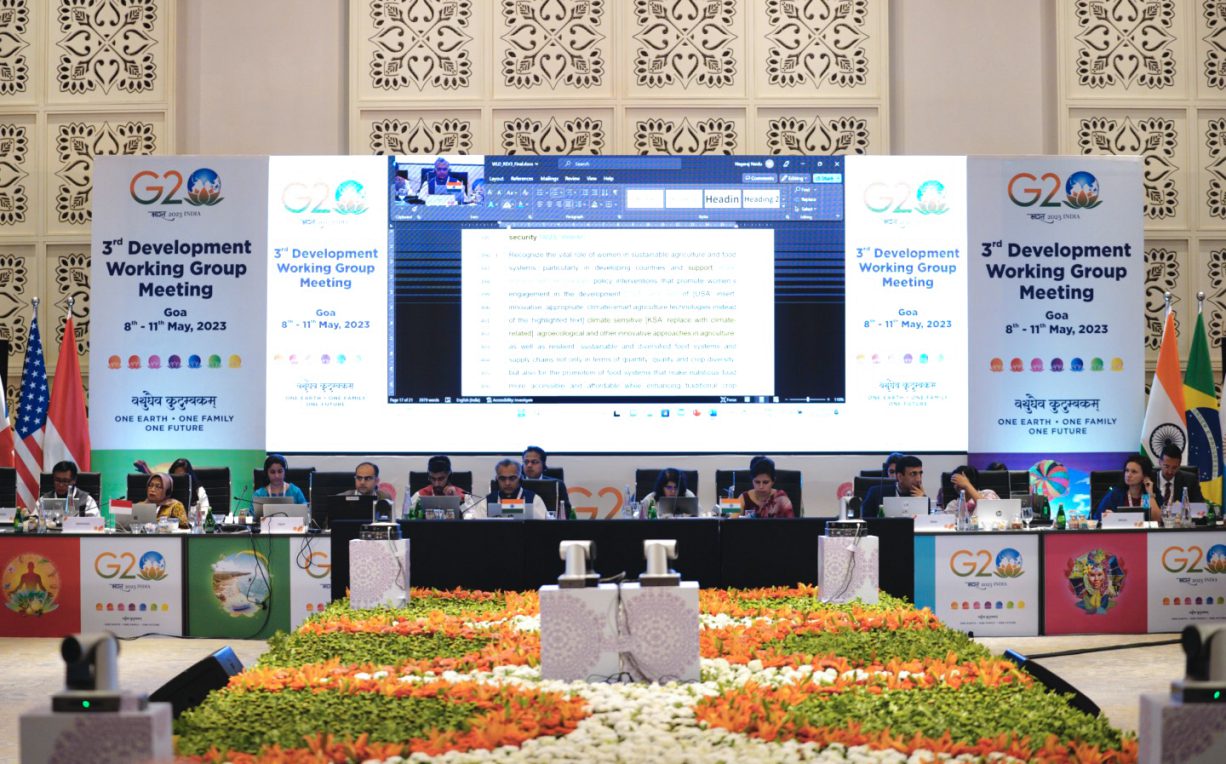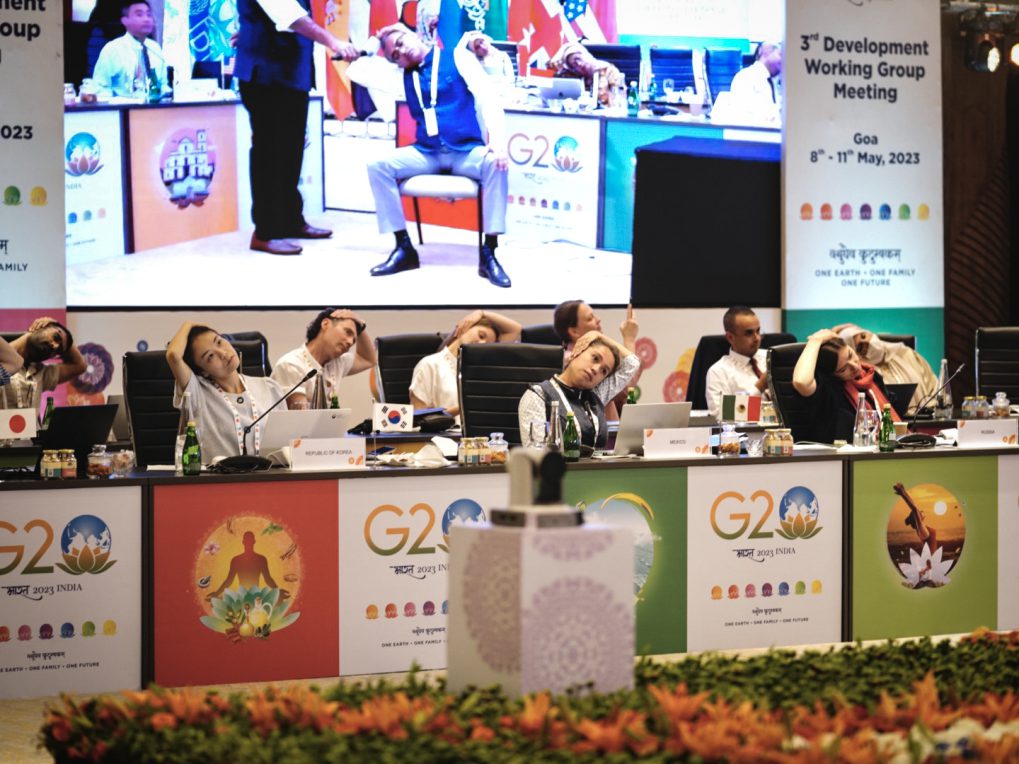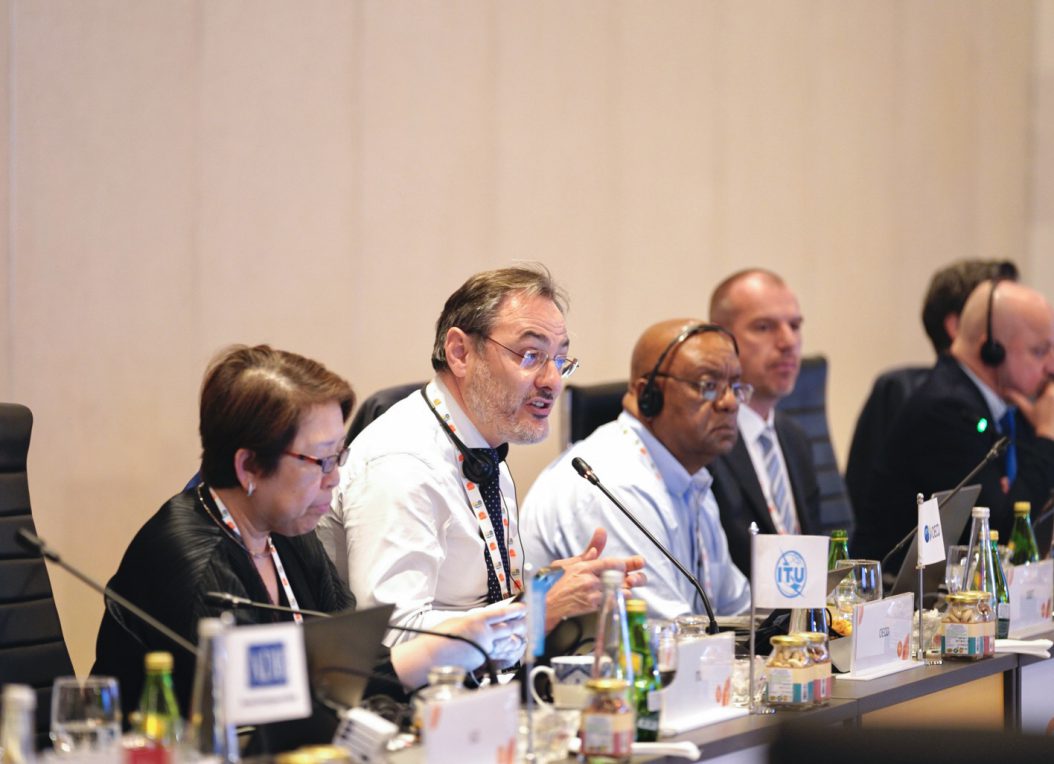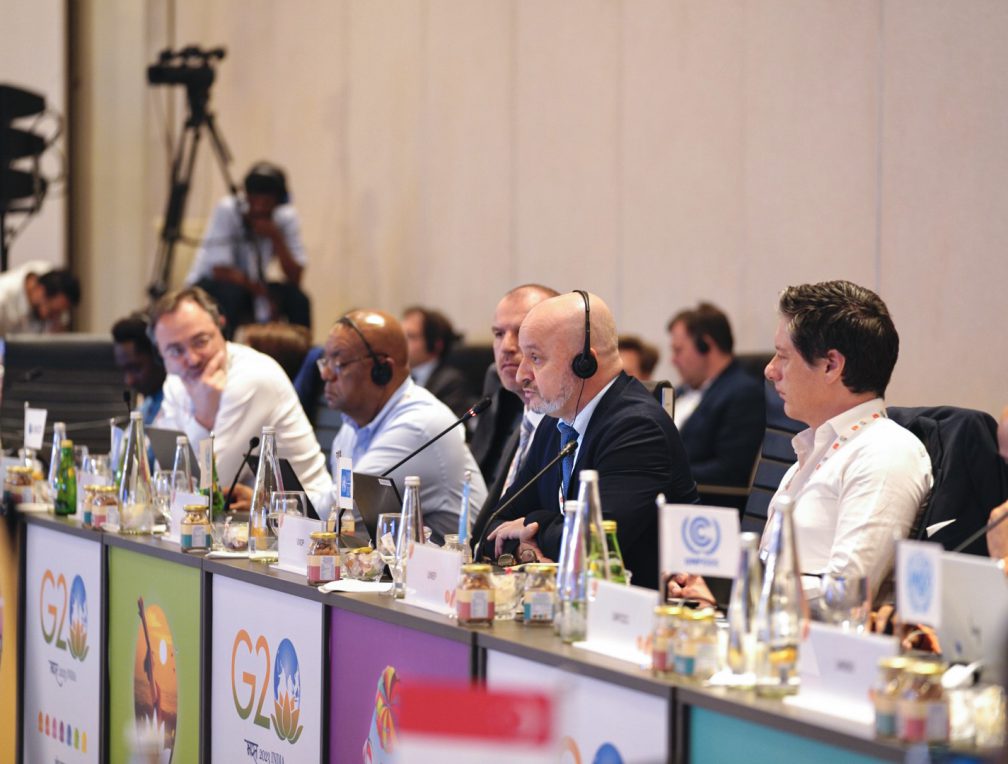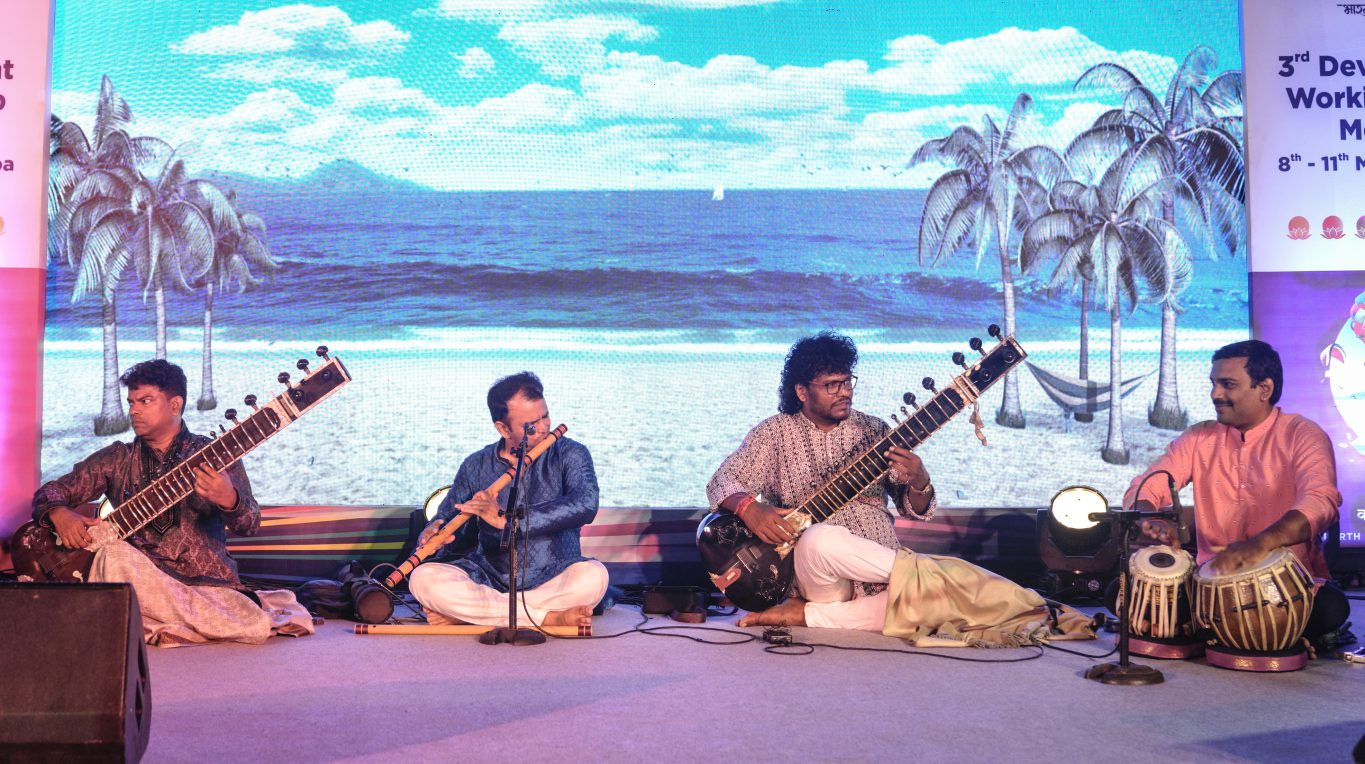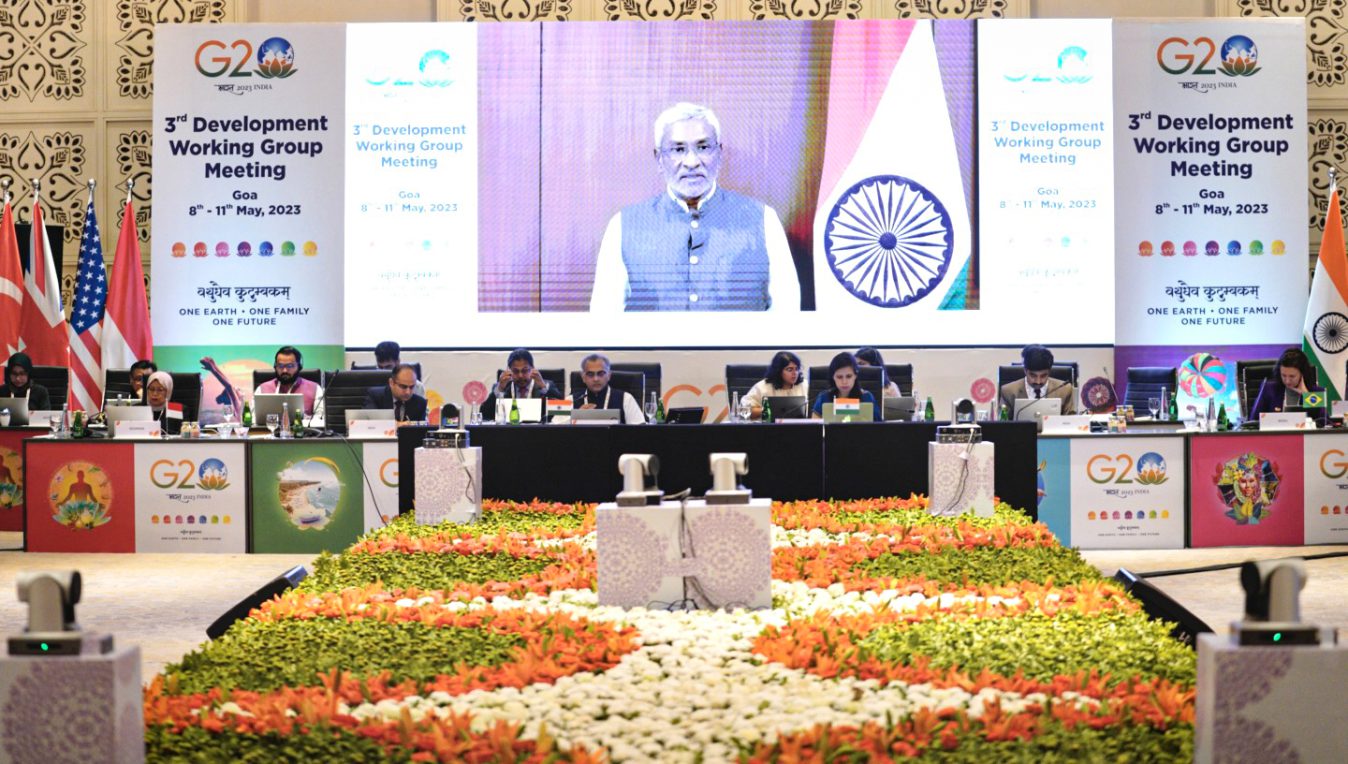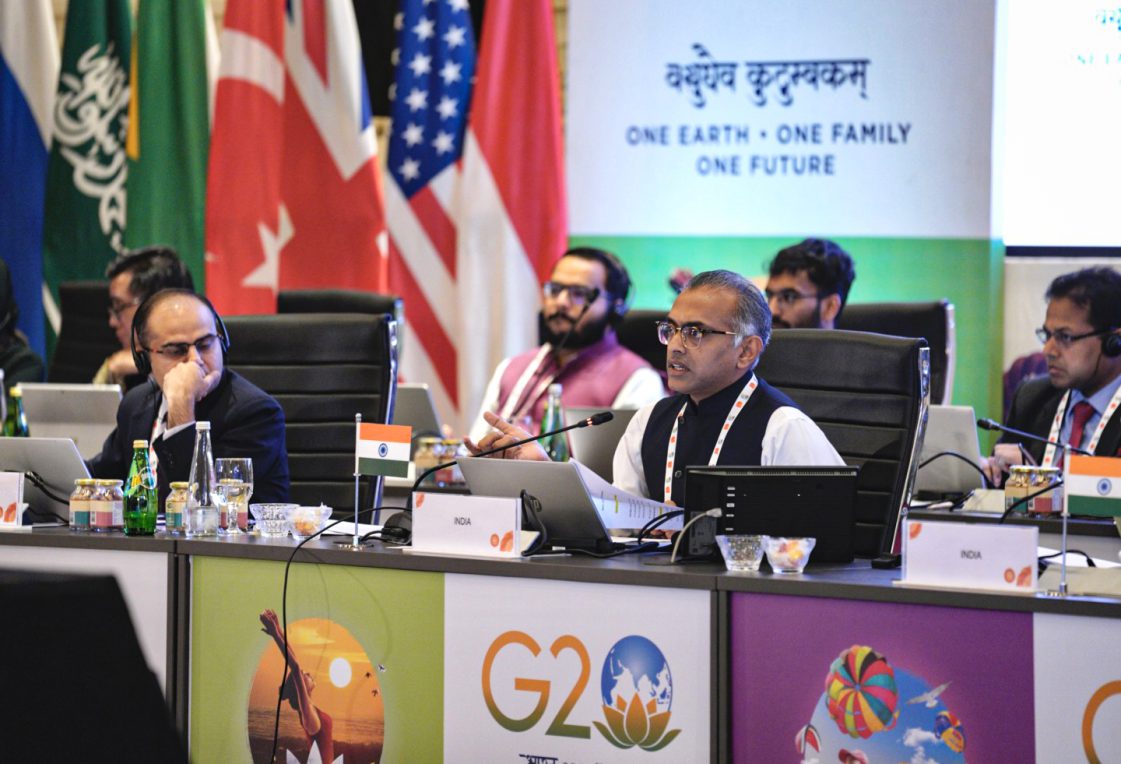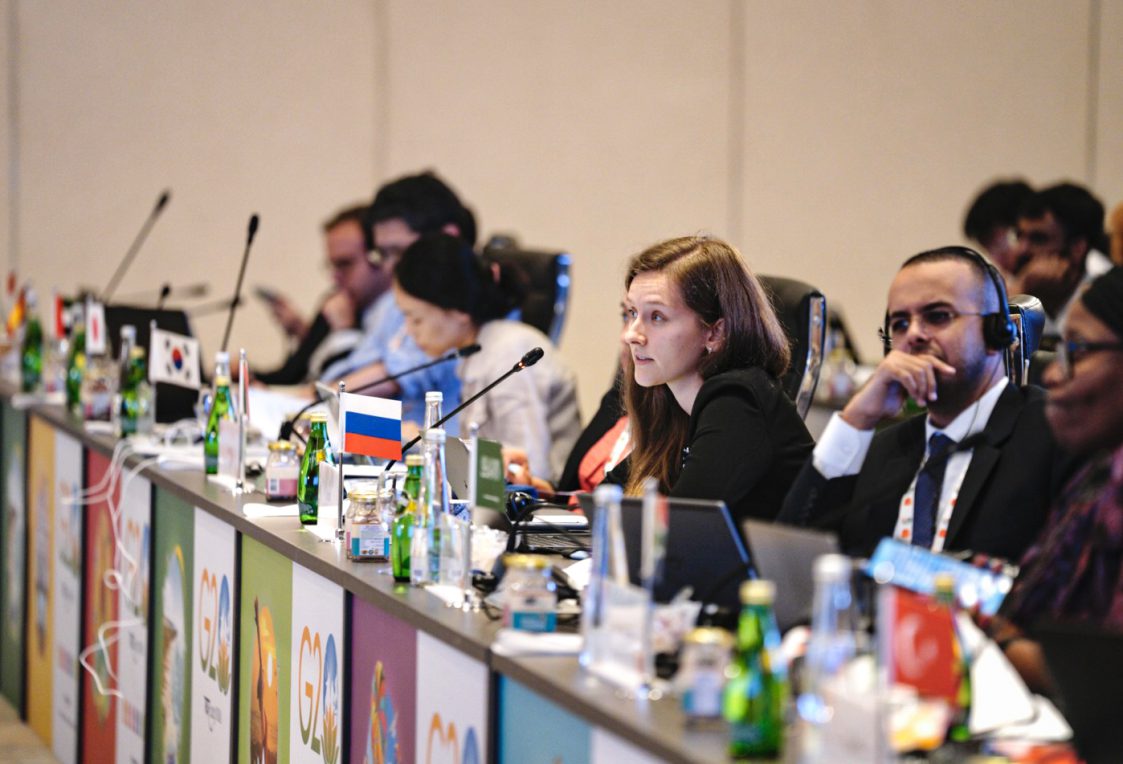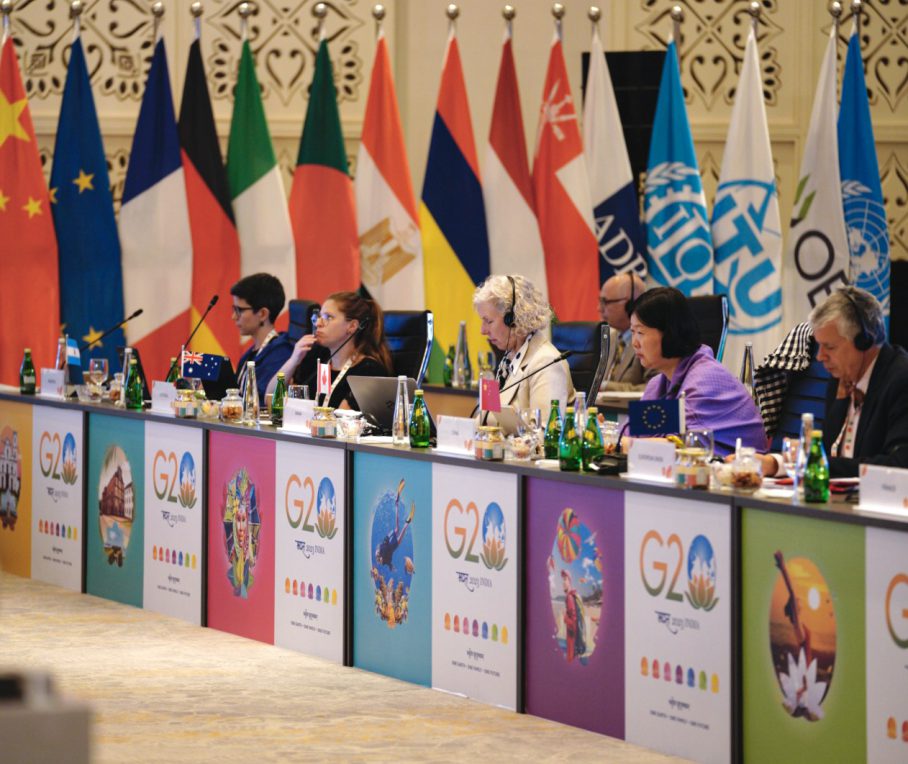The third Development Working Group (DWG) meeting under India’s G20 Presidency was convened from May 8 to 11 in Goa. Delegations from all G20 countries, 9 guest countries and 11 international organisations participated in-person. Building on the deliberations in the previous Development Working Group meetings and the DWG intersessional meetings, the delegates focused on furthering the work of building consensus on the two proposed outcome documents- the G20 Action Plan for Accelerating Progress on the SDGs and the G20 High-Level Principles on Lifestyle for Environment.
On Day 1, the transformative transition area- ‘Digital Transformation’, and G20 High Level Principles on harnessing Data for Development to accelerate progress on the SDGs was discussed. Delegates deliberated on strengthening data-informed approaches to development, bridging the digital divide, creating sustainable data infrastructure, financing and building data-related capacities, especially in developing countries. The delegates also discussed the G20 High Level Principles on Lifestyles for Sustainable Development to addresses the challenges of biodiversity loss, pollution and climate change through a human-centric pro-growth approach. The need for new development models based on synergies between the development, climate and growth agendas rather than trade-offs was discussed.
Day 2 saw deliberations on high level principles to advance political momentum on achieving the SDG agenda. The Indian Presidency’s priority of gender equality and women-led development as an action area with a multiplier effect on the SDGs was acknowledged. A paradigm shift in the role of women was called for through the G20 Action Plan, by supporting women’s economic and social empowerment, digital inclusion and nutrition security, and adopting gender-responsive approaches in environment and climate action; and global commitments to realize gender equality.
The delegates also deliberated on the critical role of access to adequate and affordable finance for transformative transitions and accelerating progress on the SDGs. The impact of recent global shocks in exacerbating the financing gap, deepening inequalities and reversing progress on SDGs, particularly in developing countries was discussed. Delegations emphasised on the need for an international enabling environment to scale-up long-term financing, especially for developing countries, advocated for an inclusive international financial architecture and promoted inclusive and reinvigorated multilateralism.
On Day 3, delegates conferred on the importance of collectively facilitating an international enabling environment and policy support system which is adaptive, proactive and responsive to the needs of developing countries and leaves no one behind while transitioning to a global net zero future. The need for collective global actions including capacity building, tech transfer, financing and policy coherence, to support developing countries in the transition process was deliberated. Discussions were also held on role of coordination within and beyond the G20, to ensure policy coherence on sustainable development outcomes across all G20 work streams, including closer coordination between the Finance and Sherpa tracks of G20.
The meeting closed with a strong message on driving strong, sustainable, balanced and inclusive growth and sustainable development, representing the voice of the Global South and leaving no one behind.
During the meeting, special experiences were curated for the delegates to give them a glimpse of the vibrant culture of India, particularly Goa. An exhibition on the theme of Women-led development was organised for the delegates at the meeting venue. Delegates were taken on a tour of the Raj Bhawan (Governor’s Estate) on the first day. The culture of Goa was showcased to the delegates through cultural performances in the evenings. A special Yoga session was also organised for the delegates
